第147章 LETTER C(2)
There is one of the vices above mentioned,into which people of good education,and,in the main,of good principles,sometimes fall,from mistaken notions of skill,dexterity,and self-defense,I mean lying;though it is inseparably attended with more infamy and loss than any other.The prudence and necessity of often concealing the truth,insensibly seduces people to violate it.It is the only art of mean capacities,and the only refuge of mean spirits.Whereas,concealing the truth,upon proper occasions,is as prudent and as innocent,as telling a lie,upon any occasion,is infamous and foolish.I will state you a case in your own department.Suppose you are employed at a foreign court,and that the minister of that court is absurd or impertinent enough to ask you what your instructions are?will you tell him a lie,which as soon as found out (and found out it certainly will be)must destroy your credit,blast your character,and render you useless there?No.Will you tell him the truth then,and betray your trust?As certainly,No.But you will answer with firmness,That you are surprised at such a question,that you are persuaded he does not expect an answer to it;but that,at all events,he certainly will not have one.Such an answer will give him confidence in you;he will conceive an opinion of your veracity,of which opinion you may afterward make very honest and fair advantages.But if,in negotiations,you are looked upon as a liar and a trickster,no confidence will be placed in you,nothing will be communicated to you,and you will be in the situation of a man who has been burned in the cheek;and who,from that mark,cannot afterward get an honest livelihood if he would,but must continue a thief.
Lord Bacon,very justly,makes a distinction between simulation and dissimulation;and allows the latter rather than the former;but still observes,that they are the weaker sort of politicians who have recourse to either.A man who has strength of mind and strength of parts,wants neither of them.Certainly (says he)the ablest men that ever were,have all had an openness and frankness of dealing,and a name of certainty and veracity;but then,they were like horses well managed;for they could tell,passing well,when to stop or turn;and at such times,when they thought the case indeed required some dissimulation,if then they used it,it came to pass that the former opinion spread abroad of their good faith and clearness of dealing,made them almost invisible.
There are people who indulge themselves in a sort of lying,which they reckon innocent,and which in one sense is so;for it hurts nobody but themselves.This sort of lying is the spurious offspring of vanity,begotten upon folly:these people deal in the marvelous;they have seen some things that never existed;they have seen other things which they never really saw,though they did exist,only because they were thought worth seeing.Has anything remarkable been said or done in any place,or in any company?they immediately present and declare themselves eye or ear witnesses of it.They have done feats themselves,unattempted,or at least unperformed by others.They are always the heroes of their own fables;and think that they gain consideration,or at least present attention,by it.Whereas,in truth,all that they get is ridicule and contempt,not without a good degree of distrust;for one must naturally conclude,that he who will tell any lie from idle vanity,will not scruple telling a greater for interest.Had I really seen anything so very extraordinary as to be almost incredible I would keep it to myself,rather than by telling it give anybody room to doubt,for one minute,of my veracity.It is most certain,that the reputation of chastity is not so necessary for a women,as that of veracity is for a man;and with reason;for it is possible for a woman to be virtuous,though not strictly chaste,but it is not possible for a man to be virtuous without strict veracity.The slips of the poor women are sometimes mere bodily frailties;but a lie in a man is a vice of the mind and of the heart.
For God's sake be scrupulously jealous of the purity of your moral character;keep it immaculate,unblemished,unsullied;and it will be unsuspected.Defamation and calumny never attack,where there is no weak place;they magnify,but they do not create.
There is a very great difference between the purity of character,which Iso earnestly recommend to you,and the stoical gravity and austerity of character,which I do by no means recommend to you.At your,age,I would no more wish you to be a Cato than a Clodius.Be,and be reckoned,a man of pleasure as well as a man of business.Enjoy this happy and giddy time of your life;shine in the pleasures,and in the company of people of your own age.This is all to be done,and indeed only can be done,without the least taint to the purity of your moral character;for those mistaken young fellows,who think to shine by an impious or immoral licentiousness,shine only from their stinking,like corrupted flesh,in the dark.Without this purity,you can have no dignity of character;and without dignity of character it is impossible to rise in the world.You must be respectable,if you will be respected.
I have known people slattern away their character,without really polluting it;the consequence of which has been,that they have become innocently contemptible;their merit has been dimmed,their pretensions unregarded,and all their views defeated.Character must be kept bright,as well as clean.Content yourself with mediocrity in nothing.In purity of character and in politeness of manners labor to excel all,if you wish to equal many.Adieu.